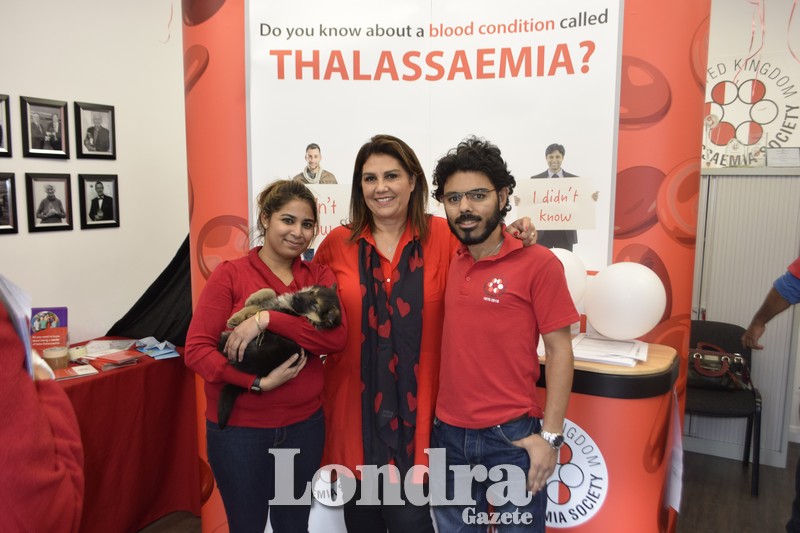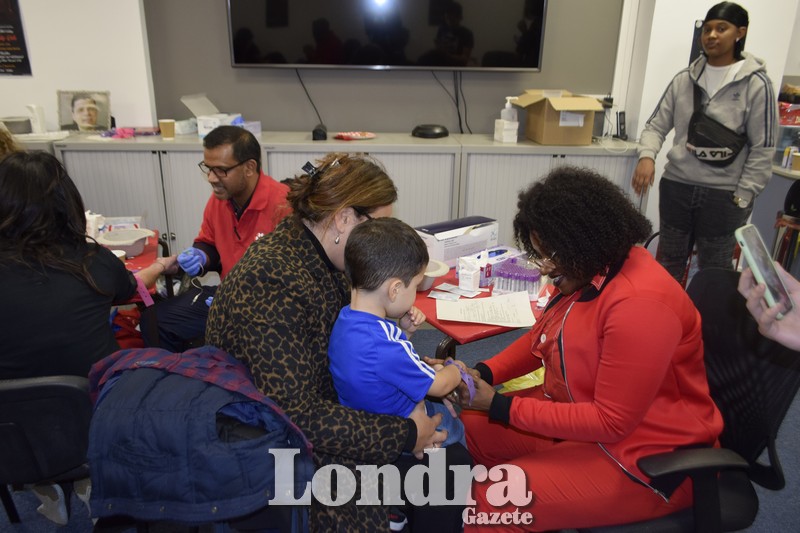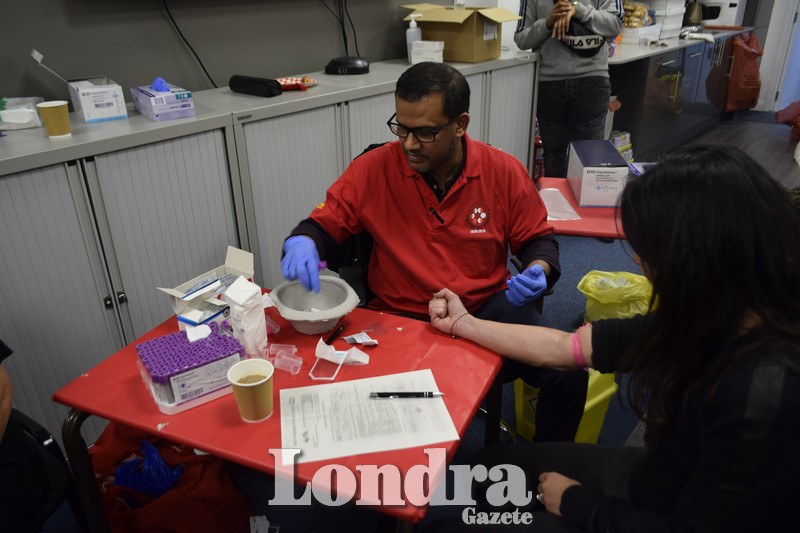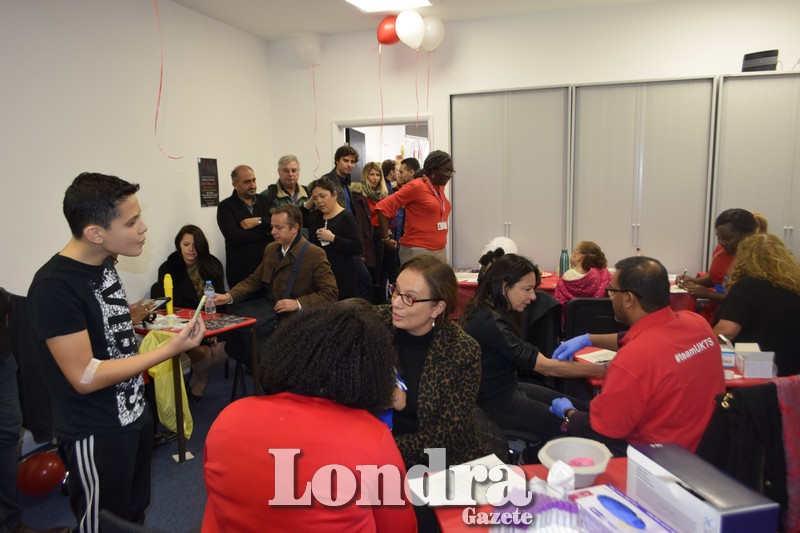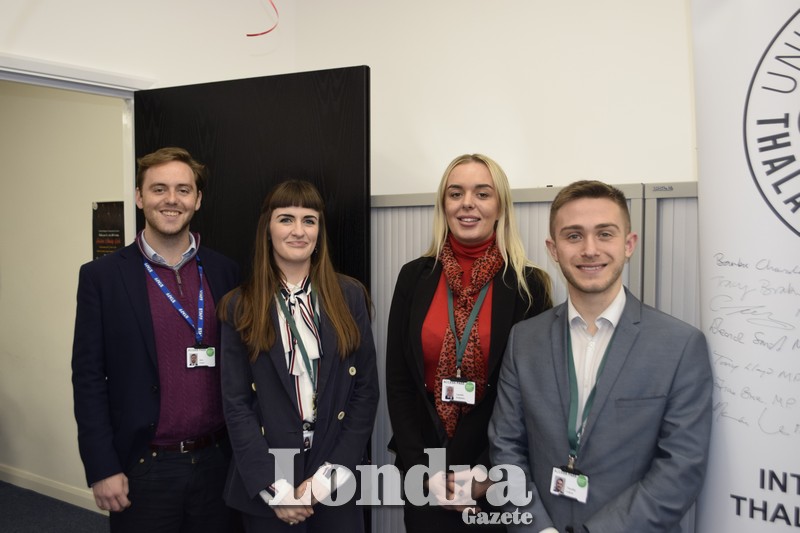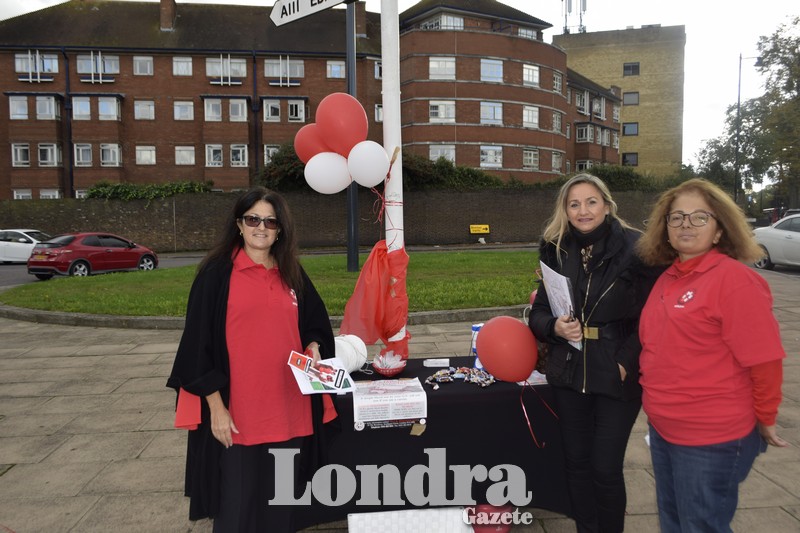UKTS launched its National Thalassaemia Day
THE United Kingdom Thalassaemia Society (UKTS) launched their National Thalassaemia Day (UK) on Saturday the 19th October 2019.
Opening its doors to the general public, inviting everyone to walk in and be tested for thalassaemia and other conditions, it also gave an option for people to learn more about the condition. UKTS offered those who attended; free screening to the general public for thalassaemia and sickle cell trait, counselling and guidance (for positive test results), free screening for Hepatitis C and other infected diseases and more.
The event was opened by the Executive Director Romaine Maharaj, Chair Gabriel Theophanous, Treasurer Oddy Cooper, Patrons Peter Polycarpou and Kypros Kyprianou, volunteers and staff. Also attending was the Mayor of Enfield Kate Analou, MP for Enfield Southgate Bambos Charalambous, David Burrowes, doctors, nurses and members of the public.

The event date was also chosen to mark the 10-year anniversary of the passing of Costas Kountourou, a prominent figure in the world of thalassaemia.
WHAT IS THALASSEMIA?
There are over 300,000 carriers with thalassaemia in the United Kingdom and that it is a hereditary condition. It is a chronic blood disorder affecting the genes that are responsible for the production of red blood cells. Meaning that patients with thalassaemia are dependent on regular blood transfusions for the rest of their lives.
Thalassaemia developed as an evolutionary response to malaria which is why it mainly affects those coming from regions such as the Mediterranean, Asia, South America, the Caribbean, Northern and Central Africa and the Middle East.
It’s also possible to be a “carrier” of thalassaemia, also known as having the thalassaemia trait. Being a beta thalassaemia carrier will not generally cause you any health problems, but you’re at risk of having children with thalassaemia.
In the UK, women are typically offered screening after they become pregnant despite it being available to everyone at any point in time. The blood test is usually done between 8-10 weeks, despite the best efforts by the NHS team, take the pregnancy up to 16 weeks, at which point it may be too late.

